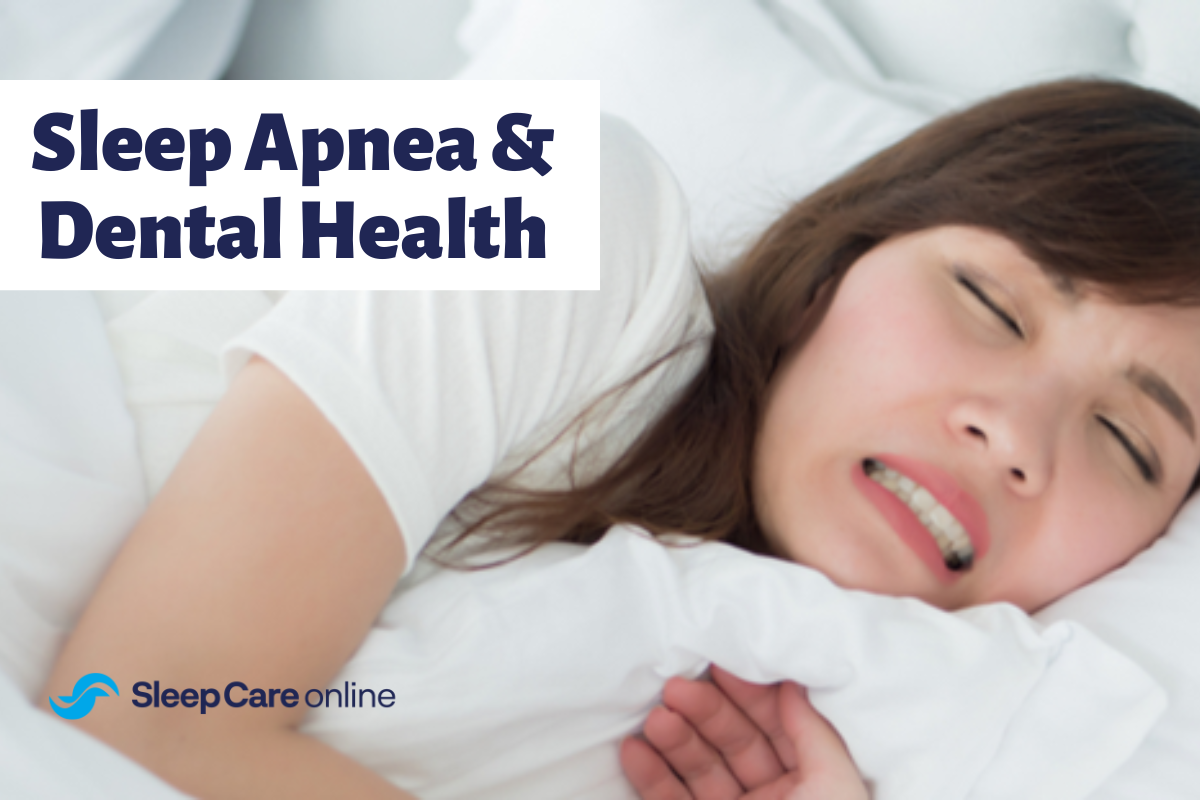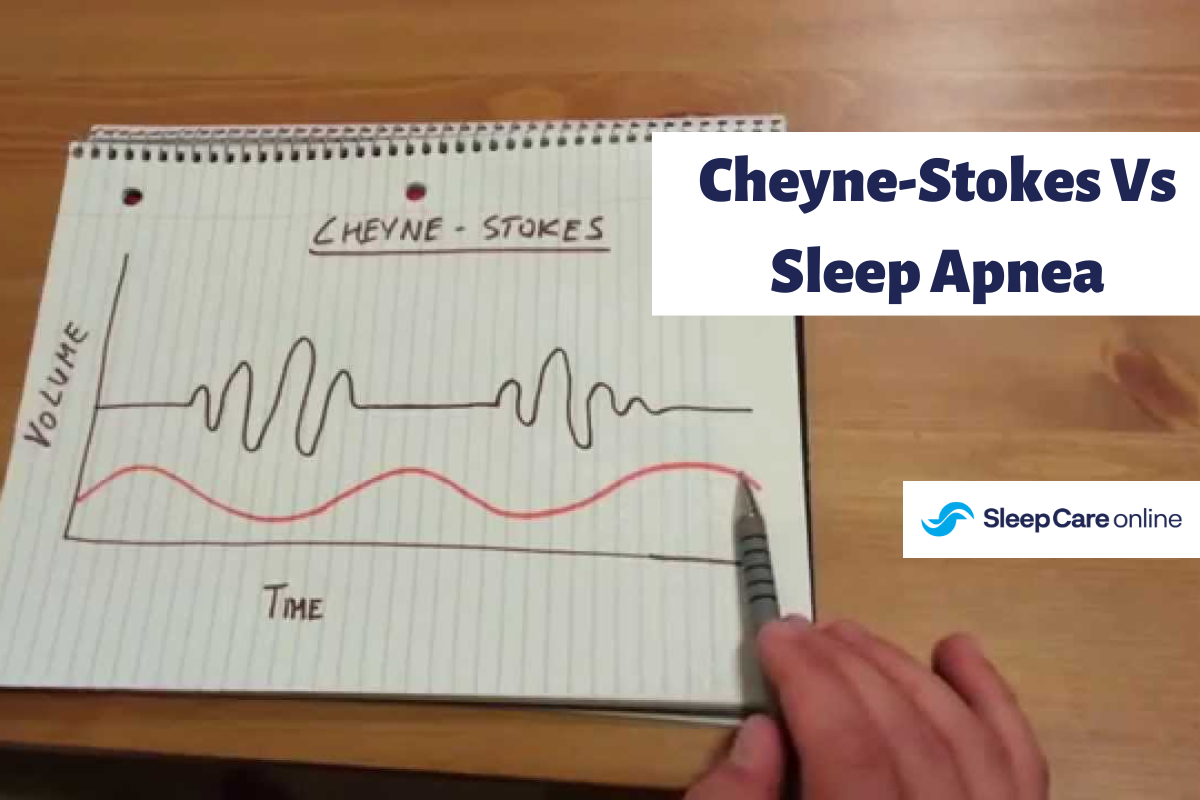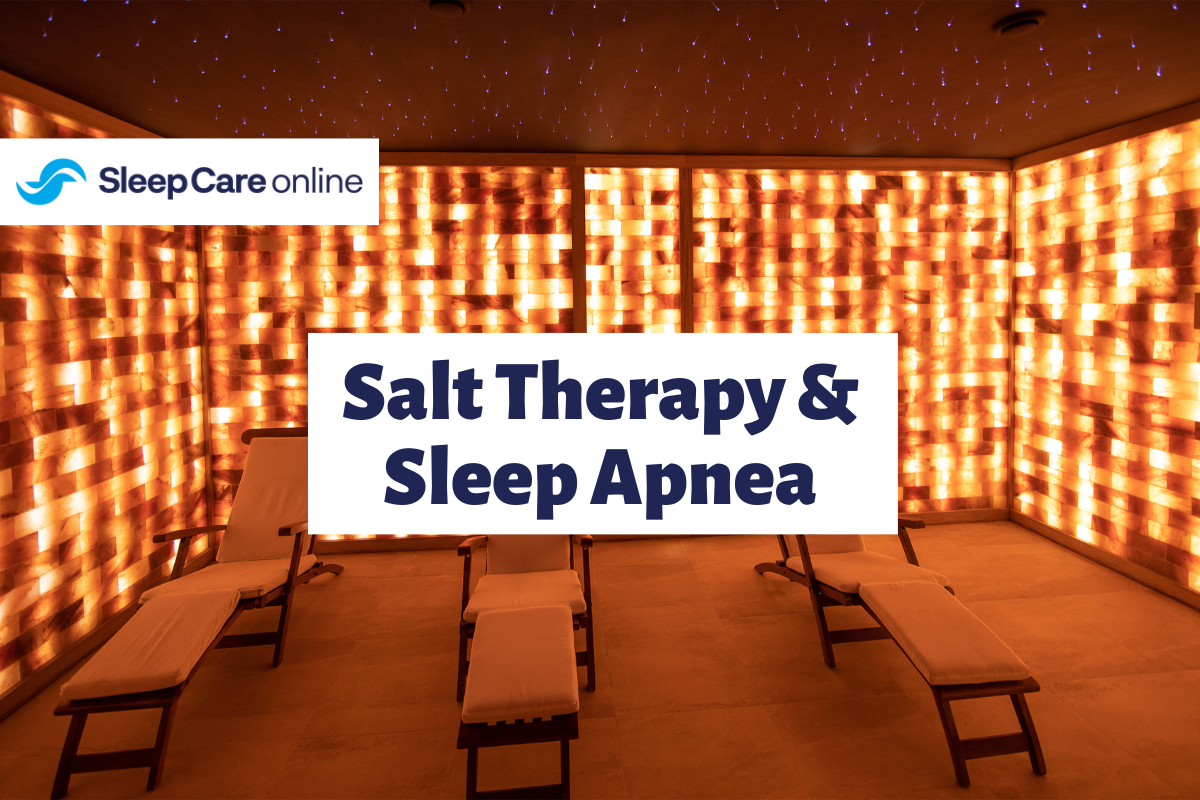Key Takeaways:
- Did you know that your dentist may be the first to spot if you have sleep apnea? That’s because of the impact sleep apnea has on your teeth.
- Sleep apnea can cause you to grind your teeth at night or have negative symptoms that affect your teeth, mouth, and gums.
- With the help of your dentist or doctor, sleep apnea can be diagnosed and managed quickly. Learn more in this article.
Sleep apnea and dental health go hand in hand without you knowing it. Sleep apnea symptoms such as drowsiness may go unnoticed by you. But your dentist may be the first to spot the telltale signs of sleep apnea and how the condition impacts the health of your teeth and gums.

Sleep Apnea and Oral Health
The connection between sleep apnea and oral health is not always evident to you. Pains in your jaw, frequent headaches, and even tooth decay can be linked to sleep apnea.
TMJ or temporomandibular joint (TMJ) disorders are caused by a misalignment of the jaw. Your dentist may see this misalignment and ask about common symptoms such as neck stiffness and headaches or a popping or clicking when the jaw opens or closes. Movements of the jaw during sleep apnea episodes may cause this misalignment. One study found that people with OSA were twice as likely to have TMJ.1
Teeth grinding or bruxism is also common among sleep apnea patients. You may experience symptoms such as jaw or neck pain. Your dentist will notice wear on your teeth and receding gums as a result. Learn more about bruxism and sleep apnea.
Because breathing can be difficult for sleep apnea patients, they may also sleep with their mouths open. Mouth breathing can dry out the mouth cavity and reduce the role of saliva in preventing tooth decay and gum disease.
Importance of Timely Diagnosis and Treatment
Dentists are becoming more aware of the link between sleep apnea and dental health. 2 Dental professionals may ask more questions about sleep issues during a routine dental exam if they notice certain oral problems. Because many patients may not realize they suffer from sleep apnea at all. Almost 80% of those with sleep apnea go undiagnosed.3 Identifying sleep apnea as a problem and treating it promptly may help avoid many dental health problems.
With sleep apnea diagnosis and treatment, many oral health problems such as TMJ and teeth grinding may resolve on their own with time. While proper oral hygiene is still necessary for dental health, using a full-face mask during CPAP therapy can also prevent mouth breathing, which in turn can help reduce occurrences of tooth decay and gum disease.
Proper treatment of sleep apnea begins with diagnosis. Fortunately, at-home sleep apnea tests have made it easy to get accurate sleep apnea results without in-lab sleep studies.
How an At-Home Sleep Study Works
- Take a free sleep assessment online.
- Receive the at-home sleep test in the mail.
- Follow the instructions and complete the test on your own schedule in the comfort of your own home.
- Upload the sleep test data for review.
- Receive follow-up results and recommendations from a board-certified sleep physician.
How Sleep Apnea Affects Oral Health
Dry Mouth
People with sleep apnea who breathe through their mouth while they are sleeping may experience a sore throat or dry mouth when they wake up in the morning. Having a dry mouth can increase the risk of gum disease or tooth decay.
Bruxism
Bruxism, also known as teeth grinding, can occur in those who have sleep apnea. Grinding teeth while asleep at night can lessen the enamel on them, result in fracturing them, and even increase the risk of jaw and mouth pain.
Additionally, those who have both sleep apnea and bruxism, also have a higher chance of developing TMJ disorders which causes dysfunction and severe pain in the jaw joint.
Where to Get an At-Home Sleep Apnea Test
Start your at-home sleep study today. Find home sleep apnea tests at Sleep Care Online, a simple, safe, and affordable way to get tested for sleep apnea at home. This service is available nationwide. Give us a call at 866.465.4478 if you’d like more information.
References
- Journal of Dental Research. J Dent Res. 2013 Jul; 92(7 Suppl): S70–S77.Sleep Apnea Symptoms and Risk of Temporomandibular Disorder.
- Clin Exp Dent Res. 2022 Feb; 8(1): 84–95. Published online 2021 Nov 17. doi: 10.1002/cre2.517. Oral health problems linked to obstructive sleep apnea are not always recognized within dental care—As described by dental professionals
- American Academy of Sleep Medicine. Rising prevalence of sleep apnea in U.S. threatens public health.

Dr. Kunal Agarwal is a highly accomplished board-certified physician specializing in Family Medicine, Sleep Medicine, and Obesity Medicine. He completed his residency at Michigan State University and a fellowship at Henry Ford Health System, and has over a decade of experience delivering exceptional patient outcomes. Dr. Argarwal is passionate about patient education and advocacy, sleep disorders, and more. His expertise in treating sleep apnea is extremely valuable to improve his patients’ lives.
Awards, Honors, & Recognition
Top Doctor
SRQ Magazine and Sarasota Magazine, 2023-2024
Fellow of American Academy of Sleep Medicine (FAASM)
American Academy of Sleep Medicine, 2021
Named “Top Doctor” for 2017, 2018 (on cover), 2019,and 2020 by Delaware Today Magazine
2017-2020




